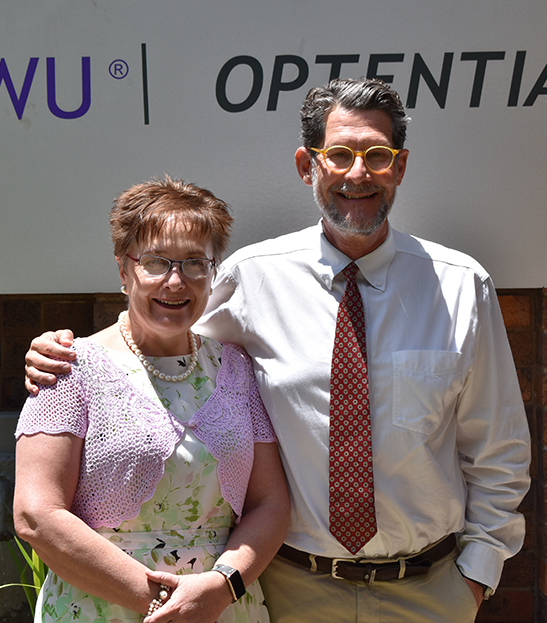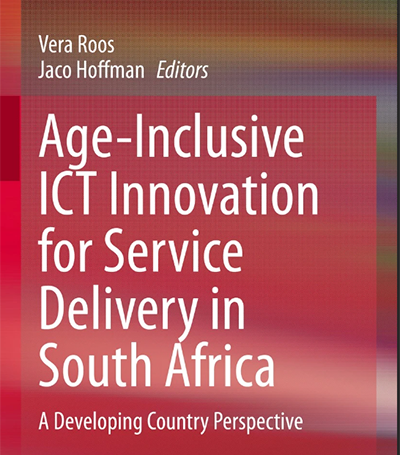Although a lot is known about how older people in developed countries use and benefit from information and communication technology (ICT), the subject has not been fully explored in developing countries.
Globally, it is expected that the care needs of older-growing populations will surpass available resources. Sub-Saharan Africa lacks long-term care systems, and technology that could play a crucial role in supporting families, communities, and government with care management.
These are some of the findings in a book that was co-authored by North-West University (NWU) professors Vera Roos and Jaco Hoffman and includes inputs from various NWU researchers and students.
The book titled Age-inclusive ICT Innovation for Service Delivery in South Africa: A Developing Country Perspective was recently launched at a hybrid event on the Vanderbijlpark Campus.
It explains the procedures and methods to advance and implement an ICT solution to provide intergenerational users access to information relevant to their tangible and intangible care needs in the South African context. Published by Springer, the open-source book offers methods as well as practical guides to assist with future designs of age-inclusive ICT solutions in developing countries.
The two authors draw from their years of research about older people. Prof Roos is a research professor in the Ageing and Generational Dynamics programme (AGenDA) in the Optentia research unit at the NWU, and is also an affiliate research fellow of the Institute of Population Ageing at the University of Oxford.
Prof Hoffman, a professor of socio-gerontology leads the AGenDA programme in Optentia. He is also a professorial fellow at the Institute of Population Ageing at the University of Oxford, where he coordinates the United Nations-endorsed African Research Network on Ageing.
The book, that resulted from a community based research project, takes the reader step-by-step through the different perspectives of developing a technological artefact to provide older South Africans easy access to information about service delivery in their local contexts.
“The initial project was aimed at bridging the gap between South African law and policy frameworks guiding municipal service delivery to older recipients, which culminated in different book chapters, each addressing a separate part of the process,” says Prof Roos.
She believes the book will be a useful tool for researchers, academics and practitioners.
“The book will guide the reader through the needs, successes, and pitfalls in developing ICTs specific to the needs of older South Africans with limited literacy levels who are often left behind in technology developments,” she explains.
“As a starting point, a baseline dataset was compiled of older South Africans' mobile phone use across rural, semi-urban and urban settings. Yabelana, which means sharing information in Nguni languages, was designed as a reusable open-source application ecosystem comprising a website, a mobile app and a USSD code,” says Prof Hoffman.
Aimed at sorting out the needs of older end-users, he explains that the Yabelana eDirectory captures age-inclusive and context-specific service information for these and other users. “The system then gives feedback and offers a means of keeping service providers accountable.”

Prof Vera Roos and Prof Jaco Hoffman.

The book Age-inclusive ICT Innovation for Service Delivery in South Africa: A Developing Country Perspective.
